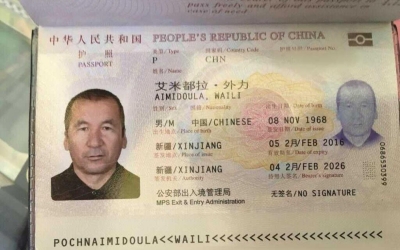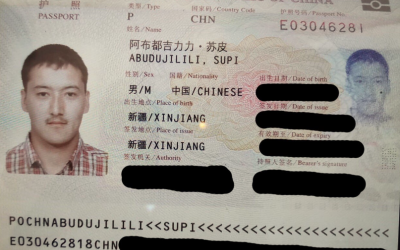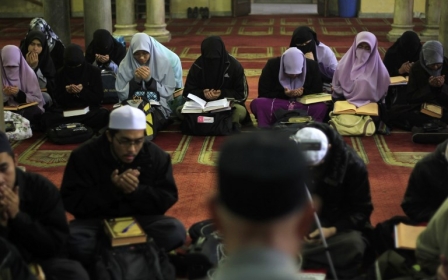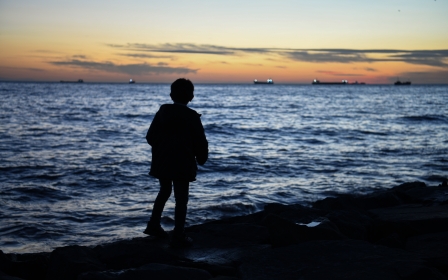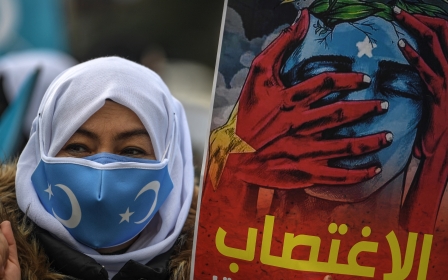UAE: China uses ‘black sites’ in Emirates to target Uighurs abroad
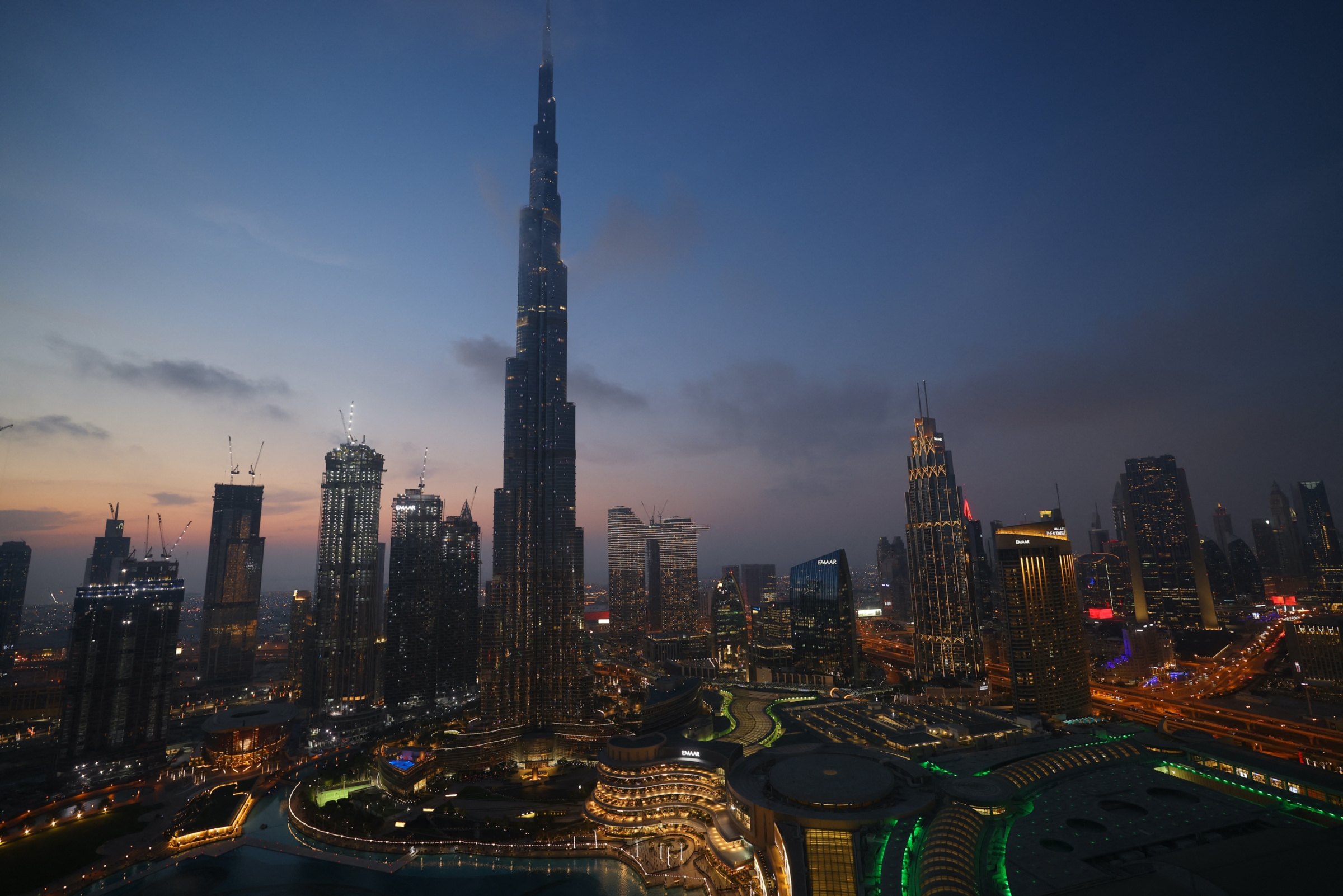
China is pressuring countries including the United Arab Emirates to detain and deport Uighurs living abroad, while also providing “black sites” where high-ranking Chinese officials can conduct interrogations, a Sky News investigation found on Wednesday.
Agents of the Chinese government often operate abroad, identifying Uighurs who have escaped from China and coercing them into spying for the government, or simply vanishing.
China’s Uighur minority, originating from the Xinjiang region, have been in the international spotlight in recent years, after mounting evidence has come to light that they are subjected to mass detention, forced labour and sterilisation in re-education camps run by the Chinese government.
China denies these measures are part of a campaign against its Uighur minority, and says they are in fact designed to tackle extremism.
However, interviews conducted by Sky News with seven people suggest China’s repression campaign against Uighurs extends beyond Xinjiang.
Based on the testimonies collected, the country where Chinese security services have been most active is the UAE.
Coerced into spying
Jesure Burunqi, an Uighur man from Urumqi in Xinjiang, left China to settle in the Netherlands in 2009.
In 2019, he was contacted by a friend from Xinjiang who wanted to meet him in Dubai to discuss "something important". However, Burunqi's ex-wife, also living in the Netherlands, was a whistleblower, who had important information about what was happening in Xinjiang.
"My ex-wife told me that she had a very important document and asked me why I must go now?” he told Sky News. “She told me, 'It's too coincidental.'”
Burunqi's ex-wife had documents about a camp in Kashgar, which listed the names, birth dates and home addresses of over 800 people kept in the camp. However, Burunqi decided to go to Dubai, where he was met by Chinese security officials, who asked him to give them the documents from his ex-wife’s computer in exchange for a "good commission" that would keep him away from "working very hard in the future".
"He told me later that he gave me a USB key and I just input it with my ex-wife's computer so that they could catch the [whistle] blower,” Burunqi told Sky News. "When I left Dubai, I asked them 'Any problem if I pass through the security check with the USB key?' They said, no problems, they did it a lot."
Burunqi decided to take back the key, which he handed over to Dutch security services. He stopped responding to the Chinese agents’ calls, but he was sent a video of his mother, who was still in China.
“Your mum is so not very healthy - if you cooperate with us, you could meet her very soon," Burunqi remembered the agent saying.
"My sister, my brother and my mom are all in their hands," he said.
Detained at Dubai airport
In another testimony, Wang Jingyu said his parents were detained after he voiced his support for the 2019 protests in Hong Kong and criticised the Chinese army.
On his way from Turkey to China, while staying at a hotel in Istanbul he was approached and threatened by a Chinese man multiple times. He decided to shift his travels to the United States, but he had a layover in Dubai.
In Dubai, as he was about to board his US flight, he was pulled aside by two officers and detained. He was able to call his girlfriend, Wu Huan, and ask her to come and get him released.
She was also detained upon her arrival in Dubai, and was taken to a villa that had small, single rooms locked by iron doors and looked like a "prison". There, she saw other Uighurs detained.
"One day, when it was time to eat, I saw a girl shouting," she told Sky News. "She said, 'Why have you locked me up? I want to return to Turkey.' That's the first time I saw someone else besides me inside. The girl looked like she was from Xinjiang."
Jingyu and Huan said they were questioned by Chinese officials on UAE soil.
"In my opinion, they came from China's consulate, at least most of them," Wu Huan said. "At present, I know only one person, he was the consul general of the consulate. His name is Li Xuhang."
Strong economic ties
The UAE and China, who signed an extradition treaty, have been strengthening their ties in recent years. Chinese President Xi Jinping visited the UAE in 2018, escorted by Emirati jets as his plane landed. The UAE signed to China's Belt and Road investment initiative in 2019, making Beijing one of the emirates' biggest partners.
“The UAE and China are the strongest trade partners," Radha Stirling, the founder of Detained in Dubai, which helps foreign victims of injustice in the UAE, told Sky News.
"China has more than 6,000 businesses operating in the UAE. And they are the strongest ally to the UAE in the financial sense. Not only that, they both are authoritarian states, they both engage in censorship and they are sharing security."
When contacted by Sky News, a spokesperson for the Xinjiang government said: "China always respects other countries' sovereignty. It's impossible for China to set up black sites overseas. It's not true, as some western media report, that China set up black sites in Dubai. It's a total lie and smear.”
According to Sky News, countries like Egypt, Morocco, Qatar, Saudi Arabia and Syria have also contributed to China's repression campaign.
As many as 292 Uighurs are estimated to have been either detained or deported from Arab countries at China's request since 2001.
This article is available in French on Middle East Eye French edition.
Middle East Eye delivers independent and unrivalled coverage and analysis of the Middle East, North Africa and beyond. To learn more about republishing this content and the associated fees, please fill out this form. More about MEE can be found here.


